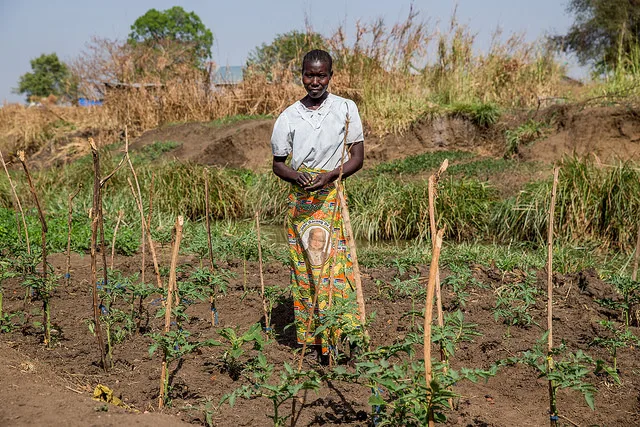Experts in the agricultural extension services have linked why most rural farmers are still poor due to their over dependent on native agricultural practices that have benefitted little from modern technologies. The Chief Executive Officer of Zeearikay Consultancy Services, Sheu Akanbi dropped this hint in his presentation on; ‘Practical Approach to Quality Agricultural Extension Delivery in Lagos State’, at the pre-season training for extension officers in Lagos, organised by the Lagos State Agricultural Development Authority (LSADA) in Oko-Oba, Agege.
He said that the quality agricultural extension delivery is crucial for supporting farmers in adopting proven technologies and best practices, which increase their productivity and improve their livelihood. He pointed out that one of the approaches to extension delivery known to many is the Training and Visit (T&V), which had basic problems of flawed philosophy premised on and guided by Transfer of Technology (TOT) model. This model, according to him, calls for delivery of research results from research scientist through the extension agents to farmers.
Its major flaws are the top-bottom approach to technology development, low level of farmers participation in technology generation through identification and prioritisation of problems, resulting in inappropriate technologies being pushed to farmers for adoption with little success. Akanbi noted that with the introduction of Unified Agricultural Extension Services (UAES) model, which enhances delivery through improve capacity building of professionals across agricultural commodity areas, thus making them jack of all fields and masters of most. This model, according to him, had greatly improved farmers production and productivity through quality extension services been provided.
Agricultural extension demonstrations are practical ways of showcasing techniques, practices or technologies to farmers and other stakeholders. Demonstration are usually conducted on farm, research stations or agency skill plot.
Speaking further, he said that accessibility and availability of production inputs and resources are of paramount importance to agricultural extension service delivery. According to him, input such as quality seeds, chemicals, fertilizers, breeding stocks, drugs, tools, and equipment of right quality, price as well as resources like water, labour, credits, transport facilities among others to improve adoption of modern practices, increase farmers productivity, improve their livelihood and extension workers performance and credibility. Akanbi added that quality agricultural extension delivery is not a luxury, but it is a necessity that by embracing practical approaches tailored to the needs of the farming communities, farmers can be empowered, to improve productivity, and ensure food security for generations to come.
Speaking in the same vein, the Acting Programme Manager of LSADA, Engr. Alade Adewale, said that the theme of the training marks the beginning of a journey towards innovation, sustainability, and prosperity saying “over the course of this training, we will delve into the latest advancements, exchange valuable insights, and equip ourselves with the knowledge and tools necessary to tackle the challenges that lie ahead”. He said that LSADA is the agricultural extension arm of the Lagos State Ministry of Agriculture. He said that the state cannot achieve full and sustainable food security without a dynamic and strong agricultural extension delivery service system. “Our role as extension officers is pivotal. We are the bridge between research and practice, between knowledge and action”, he said.
A former Programme Manager of LSADA, Pitan Babalola, in his presentation on ‘Issues and Challenges of Food Security in Lagos State: The Way Forward’, pointed out that proper orientation, training and re-training of agricultural officers is crucial to achieving food security in Lagos State, thereby promoting sustainable agriculture in a healthy environment through efficient service delivery. He highlighted some causes of food insecurity to be high population, low extension agents to farmers’ ratio, climate change, poor extension communication method, and conversion of agricultural lands to other uses and lack of storage facilities (Silos), among others. On the way forward, he called for the provision of silos for strategic grain reserves, enhancing functionality of agricultural training institutes, climate smart agriculture, effective use of subject-matter specialists, and extension communication and knowledge management, to mention a few.

